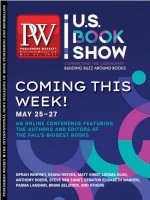In May 1953, 25 publishers and librarians met at a country club in Westchester County, N.Y., to create the “Freedom to Read Statement.” The Cold War between the United States and the Soviet Union was at its peak. Americans who were considered disloyal were being fired based on the books they read, the music they liked, and the art that hung on their walls. In Oklahoma, librarian Ruth Brown was dismissed for subscribing to the Nation, the New Republic, Soviet Russia Today, the Negro Digest, and Consumer Reports.
The authors of the “Freedom to Read Statement” explained that they were responding to the growing popular sentiment “that our national tradition of free expression is no longer valid; that censorship and suppression are needed to counter threats to safety and national security.” Librarians at the American Library Association convention in June adopted the statement overwhelmingly. The New York Times called it one of “America’s outstanding state papers” and joined the Washington Post in publishing the full text.
We are living through another age of deep ideological division. Many people sincerely believe that the best way to fight ideas they consider dangerous is to deny them an airing—or as we now say, “a platform.”
Book publishers are once again under intense pressure to engage in censorship. And I don’t use that word carelessly. Censorship involves more than the government suppression that is banned by the First Amendment. Private companies play a critical role in protecting free speech.
Many people in publishing are unhappy with their employers and rightly complain about the lack of diversity at all levels of the industry. They also strongly object to their companies publishing books that they believe are harmful, even dangerous. Amplified by vocal support on social media, these critics are having an impact. Contracts have been canceled. Books have been withdrawn from publication.
At a time when a new civil rights movement is demanding an end to centuries of injustice, it is easy to lose sight of the importance—and fragility—of the freedom to read. This freedom is actually a recent development in American history. The battle to read what we want began in the 1920s and won its major legal victories in the ’50s and ’60s.
If we are to preserve this crucial liberty, we must continue to defend the principles set forth in the “Freedom to Read Statement”:
1. “It is in the public interest for publishers and librarians to make available the widest diversity of views and expressions, including those that are unorthodox, unpopular, or considered dangerous.”
2. “Publishers, librarians, and booksellers do not need to endorse every idea or presentation they make available. It would conflict with the public interest for them to establish their own political, moral, or aesthetic views as a standard for determining what should be published or circulated.”
3. “It is contrary to the public interest for publishers or librarians to bar access to writings on the basis of personal history or political affiliations of the author.”
4. “It is the responsibility of publishers and librarians, as guardians of the people’s freedom to read, to contest encroachments upon that freedom by individuals or groups seeking to impose their own standards or tastes upon the community at large.”
5. “It is the responsibility of publishers and librarians to give full meaning to the freedom to read by providing books that enrich the quality and diversity of thought and expression. By the exercise of this affirmative responsibility, they can demonstrate that the answer to a ‘bad’ book is a good one, the answer to a ‘bad’ idea is a good one.”
The claim that the best answer to bad speech is more speech seems naive to many of us who have seen the power of social media to spread misinformation and outright lies. But the publishers and librarians who gathered in Westchester readily acknowledged the perils of free speech: “We do not state these propositions in the comfortable belief that what people read is unimportant,” they wrote. “We believe that what people read is deeply important; that ideas can be dangerous; but that the suppression of ideas is fatal to a democratic society.”
As the statement concludes: “Freedom itself is a dangerous way of life, but it is ours.”
Christopher M. Finan is the executive director of the National Coalition Against Censorship and the author of From the Palmer Raids to the Patriot Act: A History of the Fight for Free Speech in America.



 Volume 268
Issue 21
05/24/2021
Volume 268
Issue 21
05/24/2021





